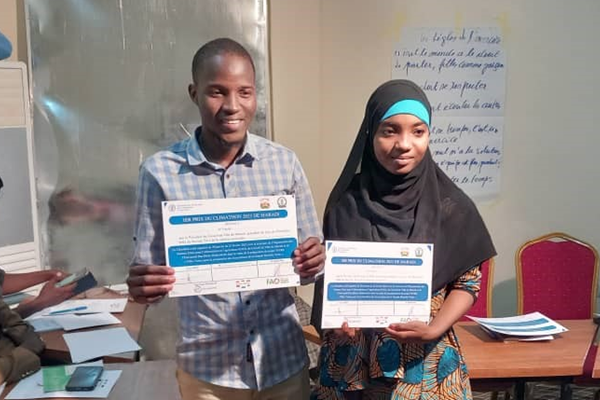News
Rechercher par

Les villes de Mendoza et de Newcastle primées dans le cadre de l’initiative Villes vertes de la FAO
26/07/2024
L’Organisation des Nations Unies pour l’alimentation et l’agriculture (FAO) a remis aujourd’hui aux villes de Mendoza (Argentine) et de Newcastle (Royaume-Uni) les tout premiers prix de l’

La mouche soldat noire à l’assaut des ordures
10/06/2024
Début 2023, la bouillonnante Abidjan, était dans une situation délicate.
Cette ville de Côte d’Ivoire de six millions d’âmes, qui gagne chaque
année 187 000 habitants, produisait quotidiennement rien de moins que 2
500 tonnes de déchets organiques. Les autorités locales peinaient à
gérer ce problème exponentiel.

Des étudiants sahéliens s’ engagent avec les bureaux de la FAO pour le "Climathon VIVRE 2023"
22/03/2023
Dans le cadre du Climathon VIVRE 2023, des jeunes Saheliens proposent des solutions à différents défis climatiques locaux: de l'atténuation des inondations à une meilleure gestion des déchets urbains.
